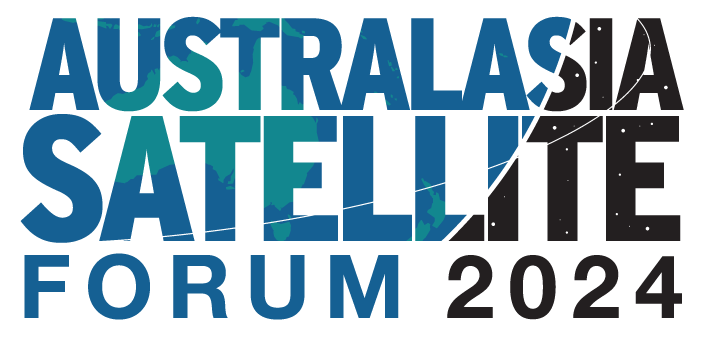|
Fed gov’t preps
LEO, wireless tests to replace copper USO
The federal
government is preparing to test voice over LEOsats and
NBN Co’s fixed wireless
network as part of its program to reform the Universal
Service Obligation regime and potentially lay the basis
for the final shut down of copper services in Australia.
The government has identiϐied 47 regions across all
mainland states, Tasmania and the NT for potential
trials, as well as a number of islands including the
Tiwi, Christmas, and Torres Strait islands, Kangaroo
Island and King Island.
The Department
of Communications has begun soliciting bids from
potential suppliers for test services.
Communications
minister Michelle Rowland in October launched a
consultation on future delivery of the USO. “While the
USO is here to stay, our government wants to ensure it
is
fit-for-purpose and encompasses new and emerging
technologies like quality
fibre connections and
satellite services,” the minister said at the time.
Rowland said
that the government had yet to make a decision on the
best approach to take to modernising the USO. The issue
is currently subject to a consultation being run out of
the Department of Communications.
A paper released
by the department as part of that process noted:
“LEOSats are currently commercially available to close
to 100% of premises in Australia, and subject to
validation and testing through technical trials, may be
a viable future solution to support voice services for
those outside the current
fixed line footprint.”
Currently the
USO is delivered by Telstra under contract with the
Commonwealth.
The scheme is
intended to ensure that every household has access to a
Standard Telephone
Service. It is delivered via Telstra maintaining
operation of payphones and keeping the copper network
alive in regional areas outside the NBN fixed line
footprint.
The previous
government in 2021-22 conducted Alternative Voice
Services Trials to test new
approaches to delivering voice outside NBN’s fixed line
services. NBN Co, Optus, Telstra, Concerotel and Zetifi
participated, with technologies including fixed
wireless, 4G and GEOsats employed.
The USO
consultation paper released last year noted: “These
trials generally demonstrated that good quality voice
services could be delivered over alternative
technologies, particularly
fixed wireless. However, they
also identified a range of issues
that still needed to be worked through, including issues
with outages and customer
support. A key limitation was that LEOSats were not able
to be widely tested as they were not commercially
available in Australia at the start of the trials.”
The new request
for tender issued by the department said that “new and
emerging technologies shows promise for providing
greater options for delivery of voice services
in regional and remote areas of Australia”.
It noted both
the local launch of LEOsat services as well as the
government’s $480 million spend to bolster NBN Co’s
fixed wireless network.
“A key principle
for government’s consideration of existing universal
service arrangements
is that any change to existing regulatory or contractual
arrangements will only be considered if there are tested
and proven alternatives to existing technologies
and services,” a tender document said.
“However,
existing real-world data on the use of emerging
technologies, including LEOsats, for voice services is
limited. Existing data is largely focused on the use and
suitability of the platform for the delivery of
broadband services rather than voice services.”
FOCUS ON
RELIABILITY: The government is seeking to understand how
LEOsats perform
with voice, including issues such as reliability and
operation during “adverse weather conditions and extreme
climates” and when mains power is not available.
The planned
technical trials will “assist the government to consider
whether alternative
technology platforms can deliver voice services at
standards which are broadly equivalent to current
services, with a particular focus on regional, rural and
remote areas of Australia.”
“The government
intends that trials will primarily provide quantitative
data to help understand how service reliability and
performance may be impacted over time by factors such as
weather, climate, topography, equipment or local power
issues,” the document said.
Under the plan
developed by the government, a provider will need to
have the capability
to deliver services at 50 of the target sites it has
identified. The department said it intends to work where
possible with a successful tenderer to identify testing
sites, which could potentially include government
buildings, community facilities or Rural Fire Service
buildings.
At least
five
sites a tenderer will need to test sites that don’t have
reliable access to mains power.
“During the
trials the Department may see beneϐit in obtaining more
data and analysis
about the performance of voice services and wish for the
tenderer to trial voice service technologies at
additional trial sites (whether in existing regions or
new regions),”
the document said. “In such an event the parties will
enter into good faith negotiations
on the terms (including price, having regard to the
costs the tenderer is likely to incur at each additional
new trial site).”
Each trial site
will need to host at least two networks or services to
supper reliable services. “At each trial site, the
Tenderer must arrange to trial a voice service supported
over a residential grade LEOSat service, noting Starlink
LEOSat services are currently generally available for
purchase across Australia,” the document said.
Other services
the department may require to be trialled include NBN Co
fixed wireless, other 4G and 5G networks, an
“enterprise-grade LEOsat service” and other GEO or MEO
sats.
The trials are
expected to be carried out between April and September,
although the government has
flagged the potential for a further two six-month test
periods. -
Rohan Pearce,
CommsDay
Australasia Satellite
Forum 2024
Fullerton Hotel, Sydney
3-4 June 2024
SAVE THE DATE
TWO FULL DAYS - Where Satellite Leaders Speak!
Over 50 Top Quality Speakers
>>>

Fullerton Hotel, Sydney
3 & 4 June 2024
SAVE
THE DATE
|
